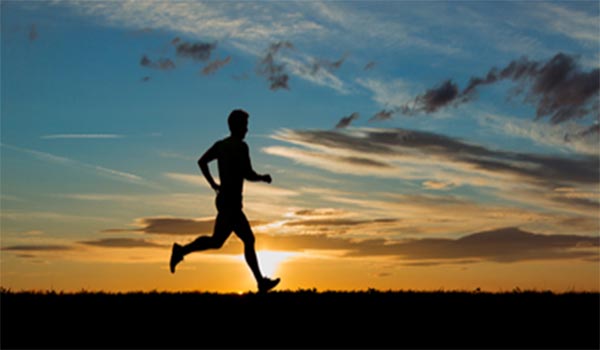
Sleep-a natural phenomenon in everybody’s life is required when our mind and body get tired. Sleep is an active period in which a lot of important processing, restoration and strengthening occurs. Exactly how this happens and why our bodies are programmed for such a long period of slumber is still somewhat of a mystery. But scientists do understand some of sleep’s critical functions and the reasons we need it for optimal health and well being.
One of the vital roles of sleep is to help us solidify and consolidate memories. As we go about our day, our brains take in an incredible amount of information. Rather than being directly logged and recorded, however, these facts and experiences first need to be processed and stored and many of these steps happen while we sleep. Our bodies require long periods of sleep in order to restore and rejuvenate, to grow muscle, repair tissue and synthetic hormones.

How much sleep do we really need?
Children-who acquire language, social and motor skills, at a breathtaking pace throughout their development need more sleep than adults, while adults need 7-9 hours of sleep per night, one year olds need roughly 11-14 hours, school age children between 9 and 11 and teenagers between 8 and 10.During these critical periods of growth and learning-younger people need a heavy dose of slumber for optimum development and alertness.
However, in spite of all these reservations, limitations some people prefer to sleep longer time than they actually supposed to sleep and get up late in the morning. Because they don’t follow “Early to bed and early to rise” principle in their life. They sleep late at night due to their erratic practice and get up next day very late. This makes them lethargic, drowsy, restless, lazy and more over they spend the whole day unproductively either by rolling again and again on the bed, glue to TV with remote control in their hands and sometimes they don’t even bother to take their food on time.

If the people of such habits cultivate and follow the habit of sleeping early in the night and get up early in the morning, they gain lots of benefits.
10 Benefits of Rising Early, and How to Do It
“Early to bed and early to rise makes a man healthy, wealthy and wise” – Ben Franklin, famously
“Put no trust in the benefits to accrue from early rising, as set forth by the infatuated Franklin …” – Mark Twain

There are many great benefits.
Now, let us first say that if any one of us is a night owl, and that works for us, we think that’s great. There’s no reason to change, especially if we are happy with it. But for many others, switching from being a night owl to an early riser (and yes, it is possible) has been a godsend. It has helped them in so many ways that they would never go back.

Here are just a few:
1. Greet the day. Most of us love being able to get up early and greet a wonderful new day. We suggest creating a morning ritual that includes saying thanks for our blessings.
We are inspired by the Dalai Lama, who said, ” Everyday, think as you wake up, ‘today I am fortunate to have woken up, I am alive, I have a precious human life, I am not going to waste it. I am going to use all my energies to develop myself, to expand my heart out to others, to achieve enlightenment for the benefit of all beings, I am going to have kind thoughts towards others, I am not going to get angry or think badly about others, I am going to benefit others as much as I can.’ “
2. Amazing start. We used to start our day by jumping out of bed, late as usual, and rushing to get ourselves and the kids ready, and rushing to drop them to school and come into work late. We would walk into work, looking rumpled and barely awake, grumpy and behind everyone else. Not a great start to our day. Now, we have a renewing morning ritual, we’ve gotten so much done before 8 a.m., our kids are early and so are we, and by the time everyone else gets into work, we have already gotten a head start. There is no better way to start off our day than to wake early, in our experience.
3. Quietude. No kids yelling, no babies crying, no soccer balls, no cars, no television noise. The early morning hours are so peaceful, so quiet. It’s our favorite time of day. We truly enjoy that time of peace, that time to ourselves, when we can think, when we can read, when we can breathe.
4. Sunrise. People who wake late miss one of the greatest feats of nature, repeated in full stereovision each and every day — the rise of the sun. We love how the day slowly gets brighter, when the midnight blue turns to lighter blue, when the brilliant colors start to seep into the sky, when nature is painted in incredible colors. We like doing our early morning run during this time, and we look up at the sky as we run and say to the world, “What a glorious day!” Really. We really do that.
5. Breakfast. Rise early and we actually have time for breakfast. We have been told that it’s one of the most important meals of the day. Without breakfast, your body is running on fumes until we are so hungry at lunchtime that we eat whatever unhealthy thing we can find. The fattier and sugarier, the betterier. But eat breakfast, and we are able to sit until later. Plus, eating breakfast while reading our book and drinking our coffee in the quiet of the morning is eminently more enjoyable than scarfing something down on the way to work, or at our desk.
6. Exercise. There are other times to exercise besides the early morning, of course, but we’ve found that while exercising right after work is also very enjoyable, it’s also liable to be cancelled because of other things that come up. Morning exercise is virtually never cancelled.
7. Productivity. Mornings, for most of the people at least, are the most productive time of day. They like to do some writing in the morning, when there are no distractions, before they check their email or blog stats. They get so much more done by starting on their work in the morning. Then, when evening rolls around, they have no work that they need to do, and they can spend it with family.
8. Goal time. Got goals? Well, we should. And there’s no better time to review them and plan for them and do our goal tasks than first thing. We should have one goal that we want to accomplish this week. And every morning, we should decide what one thing we can do today to move yourselves further towards that goal. And then, if possible, do that first thing in the morning.
9. Commute. No one likes rush-hour traffic. Commute early, and the traffic is much lighter, and you get to work faster, and thus save yourselves more time. Or better yet, commute by bike. (Or even better yet, work from home.)
10. Appointments. It’s much easier to make those early appointments on time if we get up early. Showing up late for those appointments are a bad signal to the person to whom we are going to meet. Showing up early will impress them. Plus, we get time to prepare.
How to Become an Early Riser
⦁ Don’t make drastic changes. Start slowly, by waking just 15-30 minutes earlier than usual. Get used to this for a few days. Then cut back another 15 minutes. Do this gradually until you get to your goal time.
⦁ Allow yourself to sleep earlier. You might be used to staying up late, perhaps watching TV or surfing the Internet. But if you continue this habit, while trying to get up earlier, sooner or later one is going to give. And if it is the early rising that gives, then you will crash and sleep late and have to start over. I suggest going to bed earlier, even if you don’t think you’ll sleep, and read while in bed. If you’re really tired, you just might fall asleep much sooner than you think.
⦁ Put your alarm clock far from you bed. If it’s right next to your bed, you’ll shut it off or hit snooze. Never hit snooze. If it’s far from your bed, you have to get up out of bed to shut it off. By then, you’re up. Now you just have to stay up.
⦁ Go out of the bedroom as soon as you shut off the alarm. Don’t allow yourself to rationalize going back to bed. Just force yourself to go out of the room. Many people’s habit is to stumble into the bathroom and go pee. By the time they’ve done that, and flushed the toilet and washed their hands and looked at their ugly mug in the mirror, they have awake enough to face the day.
⦁ Do not rationalize. If you allow your brain to talk you out of getting up early, you’ll never do it. Don’t make getting back in bed an option.
⦁ Have a good reason. Set something to do early in the morning that’s important. This reason will motivate you to get up. Many people like to write in the morning, so that’s their reason. Also, when they have done with that, they like to read all of our comments!
⦁ Make waking up early a reward. Yes, it might seem at first that you’re forcing yourself to do something hard, but if you make it pleasurable, soon you will look forward to waking up early. A good reward is to make a hot cup of coffee or tea and read a book.
⦁ Other rewards might be a tasty treat for breakfast (smoothies! yum!) or watching the sunrise, or meditating. Find something that’s pleasurable for you, and allow yourself to do it as part of your morning routine.
⦁
⦁ Take advantage of all that extra time. Don’t wake up an hour or two early just to read your blogs, unless that’s a major goal of yours. Don’t wake up early and waste that extra time. Get a jump start on your day! Some people like to use that time to get a head start on preparing their kids’ lunches, on planning for the rest of the day.
Shekar Moily



Comments are closed.